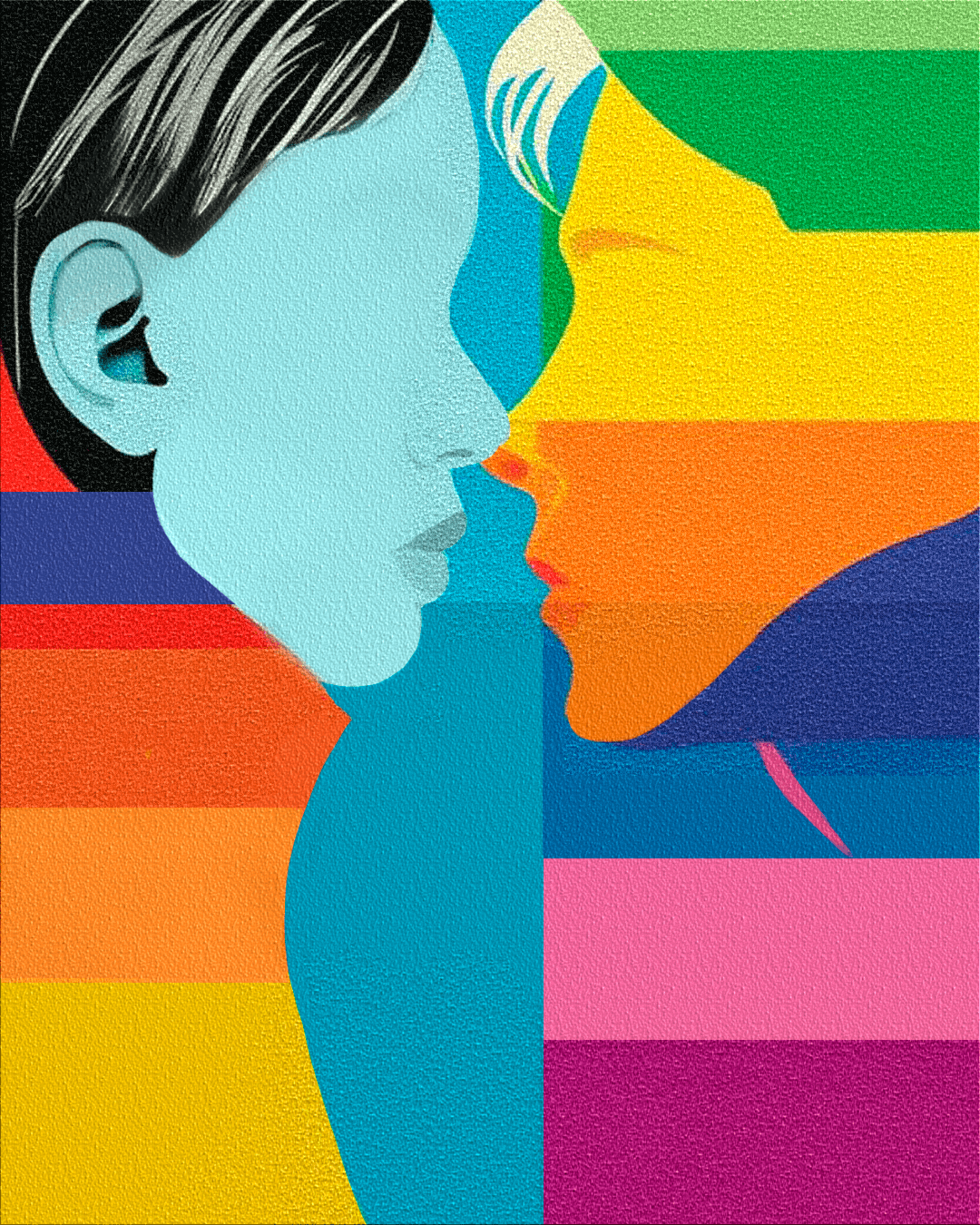“I Put a Lid On My Sexual Orientation, I Buried It”: Life of LGBTQ+ People in the Temporarily Occupied Territories of Ukraine
Russia’s all-out war against Ukraine has affected everyone in the country, with members of the LGBTQ+ community facing additional risks. Besides the problems common to all Ukrainians, these people have been fraught with difficulties because of their sexual orientation and gender identity.
The LGBTQ+ community in the occupied territories of Ukraine is at great risk due to the homophobia practised by the invaders, shaped in particular by the aggressive influence of Russian propaganda demonising queer people. The attackers specifically target LGBTQ+ people, and if identified, they are subjected to severe abuse.
The subject of the story, Serhii, believed that the worst thing he had to fear was that the invaders would find out about his friendship with the Ukrainian military from the Azov Regiment. He did not even think that his identity could become a deadly threat. Anna Vorobyova recorded his story of evacuation from Mariupol, a city almost destroyed by Russia. Anna is a Ukrainian journalist, political scientist and researcher of the impact of propaganda. She is originally from Berdiansk, a temporarily occupied town in southern Ukraine.
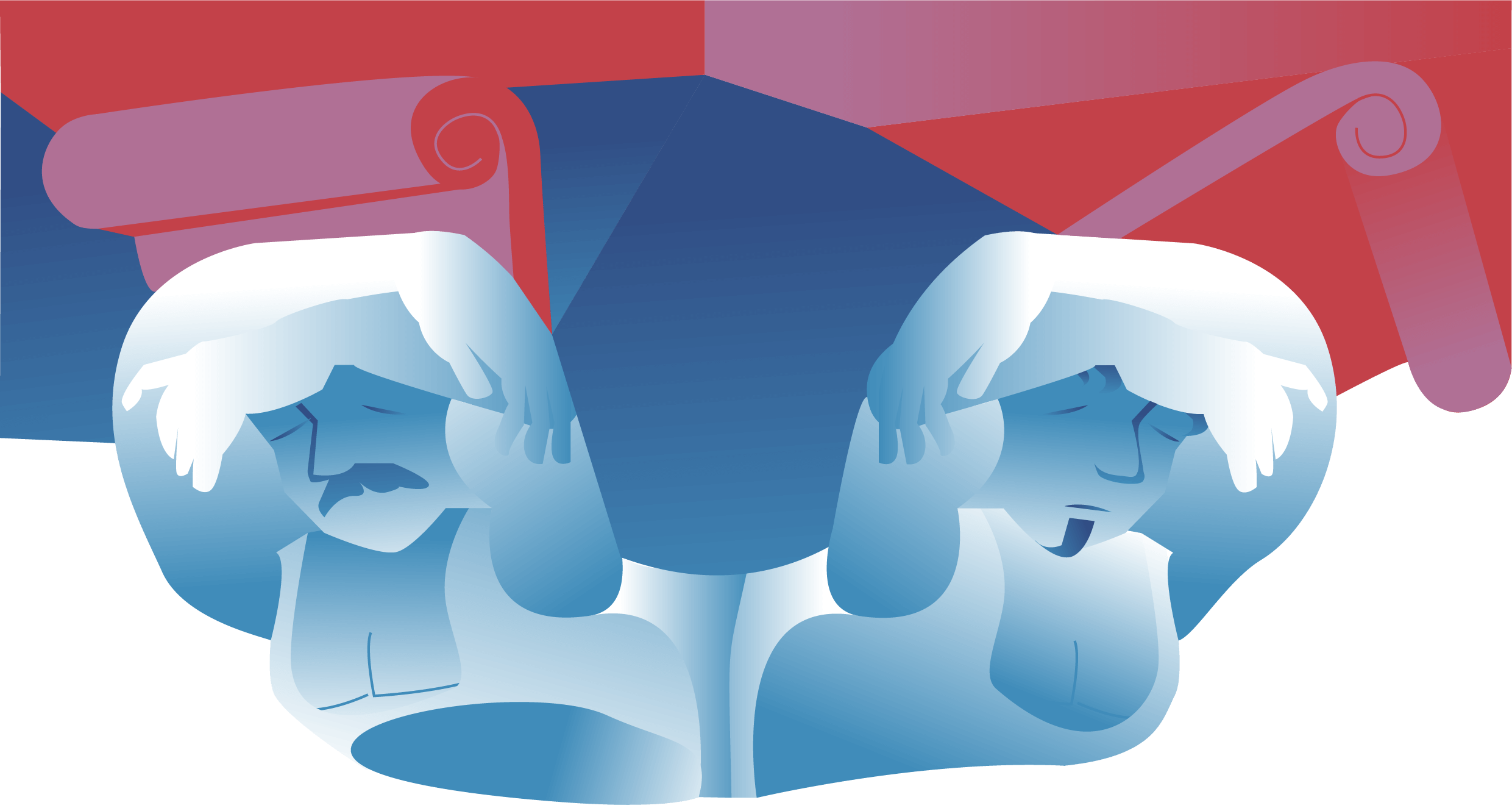
“Dehumanising the enemy”: How Russian propaganda creates an image of a decaying Europe
When the Russian Federation changed its geopolitical course and finally severed its ideological ties with the West, it launched an information campaign to destroy any positive image of the EU, US, and NATO. Ideologically, this is easy to do, as the Russian Federation has long been committed to the so-called defence of traditional values. Anything beyond that is seen as hostile and encroaching on the “spiritual tenets” [a phrase that spread in Russian political discourse in 2012 after Vladimir Putin used it in a speech, referring to the values that hold Russia together — ed.]. As a result, the LGBTQ+ community, whose rights are protected by Western democratic society, came under the gun of Russian propagandists: fake stories about gays, lesbians, transgender people, activists, and LGBTQ+ people in the Ukrainian Armed Forces were designed to poison public attitudes towards the community, induce disgust and disbelief in the Western model of human rights protection, and discredit international organisations and European institutions. And the Russians succeeded because homophobia in Russia is quite strong.
To this end, the State Duma of the Russian Federation has even passed a special law banning “propaganda of non-traditional relationships”: the dissemination of information about LGBTQ+ people to all age groups through the media, the internet, advertising, books and cinema. Until 2013, there was only a ban on promoting “LGBTQ+ values” to minors, but this now applies to all Russian citizens. The Constitution of the Russian Federation was also amended to define marriage as a union between a man and a woman, thus excluding same-sex unions. Sexual orientation has become a tool of manipulation and a weapon in the fight against opponents.
The success of the propagandists’ homophobic information campaign, reflected in Russian society’s hostility to Western values, allowed them to use homophobia to discredit opponents not only internationally but also domestically.
Typical propaganda narratives to discredit LGBTQ+ people are as follows:
- Belittling NATO by comparing it to a “gay alliance”: the Alliance’s military will not be able to withstand the world’s second-largest army because they are all gay.
- Comparing LGBTQ+ people to a deadly disease and invoking a “gender-neutral God” that contradicts the principles of Orthodoxy (most commonly seen in the rhetoric of Russian President Vladimir Putin). Referring to Ukraine, Russian propagandist Vladimir Solovyov said, “As for homosexualism, you should decide whether you believe in God or homosexualism”. The propaganda channels set up in the temporarily occupied territory of Ukraine often use the metaphor of Sodom and Gomorrah when referring to Kyiv: “Kyiv has been captured by homosexuals”, “Kyiv is now in faggots’ holdfast”.
- Diminishing the power of states that defend the rights of queer people. Allegedly, this weakens society — in contrast to the strong Russian Federation — and therefore NATO countries will not be able to resist the Russians. In the same context, the strength of the resistance of the Ukrainian military, which includes open LGBTQ+ people, is ridiculed, and therefore Ukraine is doomed to defeat.
- Russian propaganda vividly and systematically emphasises that Western countries want to convert Russian children to LGBTQ+, which will lead to the extinction of the nation or the significant spread of AIDS.
- Since 2022, Russian officials have publicly stated that they are fighting against NATO and LGBTQ+ people in Ukraine.
Russian television and social media have been actively disseminating information that Ukraine’s top political leaders are “Gayrope-captured fags”, including the insinuation that the former adviser to the head of the presidential administration, Oleksii Arestovych, is gay.
Against the backdrop of Russia’s full-scale war against Ukraine, pressure on queer people in the temporarily occupied territories of Crimea, Donbas and southern Ukraine has increased. Russia has illegally annexed Ukrainian land and changed the constitution to allow the invaders to enforce their laws in the occupied territories. The Russian occupation administration views LGBTQ+ community representatives as enemies to be fought or “reeducated”.
Living as LGBTQ+ in the temporarily occupied territories of Ukraine
The anti-European rhetoric, the spread of homophobia and the transfer of power to armed people resulted in executions and torture becoming a reality in the self-proclaimed Donetsk and Luhansk republics. Violence against LGBTQ+ people has become a norm, encouraged by the authorities.
I had a chance to speak to a representative of the LGBTQ+ community who spent a month under occupation in Mariupol, Donetsk Region, survived the bombing and told me what processes are occurring both in the city and in people’s minds.
“I did not believe the war would happen. On 23 February, I was talking to a friend from St Petersburg who had moved there after the occupation of Donetsk. Throughout February, my friend urged me to move, convinced that war was imminent. Since I was engaged in mental health work, I thought that this was how his PTSD manifested. I was joking, sending memes about Biden ‘forgetting to take his pills’ and calming him down”, says Serhii, who for obvious reasons chose to remain incognito.
Serhii says that the concept of human rights and respect for LGBTQ+ people in the Ukrainian south and in Ukraine as a whole is an ambiguous issue, but not as burning as in Russia. Serhii has many friends from the Azov Military Regiment who knew of his identity, but only joked about it. In his opinion, the situation has worsened since 2014, especially in industrialised cities [meaning the east and south of Ukraine — ed.]. The lack of information policies regarding respect for sexual orientation did its job. At the same time, Serhii recalls going to the Equality March [a traditional march in support of equal rights for LGBTQ+ people organised by the KyivPride NGO in late June as part of the International Pride Week — ed.] in Kyiv in 2020, despite being afraid of right-wing extremists, or how happy he was to see a huge rainbow flag flying across the Kyiv sky.
“On 24 February, I woke up to explosions. We were neither morally nor technically prepared. I resisted the urge to stock up on food; all I had was an open jar of cucumbers and some meat. I immediately texted my mother and she came over. From that moment until we were evacuated to Kyiv a month later, we were together. Together, we watched our rooms being destroyed, ate in the neighbouring front yard, and looked for ways to get out of the burning city. I did not immediately think that the issue of sexual orientation could affect my life. It wasn’t because I was careless, I just didn’t have time for it. Until, at a checkpoint, a representative of the Donetsk People’s Republic [a terrorist quasi-state formation in the temporarily occupied territory in the Donetsk Region of Ukraine — ed.] said, ‘We’re going to save you from the fags and Westies’. Then I realised that I might be in trouble. And the first thing I did was to put a lid on my sexual orientation, just bury it. That’s how fear works”, Serhii recalls the tragic events.
For one month, Serhii and his mother lived under occupation and active military operations. If it is possible to say that anything in this series of tragic events is more or less memorable, two situations struck him most. One was when their house was bombed. He and his mother collected some things in a small bag and ran outside. They were rushing to a neighbouring house when they stopped near a couple. The husband looked back and said to his wife: “I left $100,000 on the balcony”. Then they all moved into the empty apartments in the intact building across the street.

“We came to protect you from fags and Westies”
In the second incident, Serhii was targeted as an LGBTQ+ person. Every day, he and his mother looked for ways to leave. But every time, the Russians gave them false information. There were no Ukrainian communication networks in the city anymore, they were cut off immediately, and Russians broadcast Russian propaganda saying that “Kyiv has fallen, Kharkiv has been liberated, Zelenskyi has fled the country”. Serhii says that at first, they didn’t believe in this nonsense, but later, due to the lack of alternative sources of information, doubts began to take root.
One day they heard that there was going to be an evacuation under the auspices of the Red Cross, and they thought it was towards Ukrainian-controlled territory. They decided that this was their chance. However, as it later turned out, the Russians gathered the people of Mariupol at the announced location and, according to Serhii and his mother, shelled a nearby bus stop. Later, the Russian TV would say that it was done by the Ukrainian Armed Forces.
Serhii and his mother had several such attempts. In the end, they escaped with the help of volunteers who drove people out at their own risk. However, Serhii was forced to undergo the so-called filtration and realised how threatening it was to be a member of the queer community in the occupied territories.
When Serhii’s documents were checked, he listened to the military: a representative of the Donetsk authorities, a paramilitary from Chechnya and a Russian career officer.
“It seemed to me that they were most afraid of the Kraken special forces, because while they were looking through my passport, one of them said, ‘You’ve seen what the Kraken do, they’re Azov offshoots who demolished the Lenin monument’. They spoke about the demolition of the monument with such horror, and I thought, ‘Come on, it’s just a monument, and whole blocks are being demolished in my city’. And then the Chechen said, ‘We are going to kill all the Krakens, we will save the Ukrainians from all the fags and Westies’. At that point, I froze and remembered for the first time who I was. I realised that I could pay for my identity with my life. Before, I was afraid that my friendship with the Azov soldiers would be the cause of my being denied exit, or even that they would put me in the cellar. I had never thought about the risk of being gay before. I got myself together and started playing the fool. I don’t know how I did it, but I giggled nervously at the word ‘fags’ and was lucky the military weren’t very clever. ‘So you don’t like fags either?’ the Chechen military asked me, and I just nodded in approval”, Serhii says.
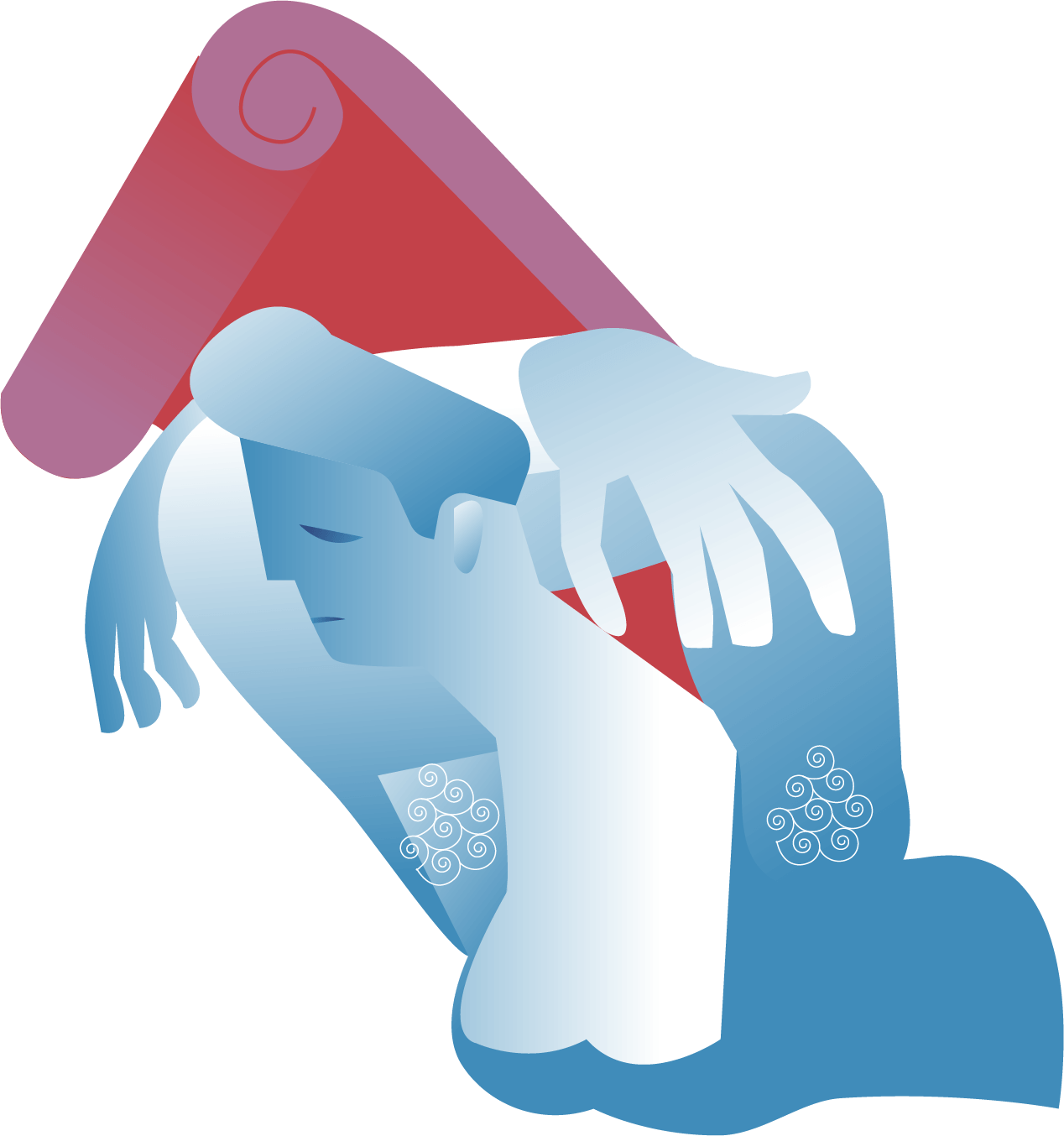
He and his mother were allowed to leave the city and spent two weeks in temporarily occupied Berdiansk. For another two weeks, they travelled to occupied Melitopol and then finally to free Zaporizhzhia. The Russians held them for several days at each checkpoint, not allowing them to wash or drink water. Every time he saw a Russian soldier at a checkpoint, Serhii’s insides would freeze. Now he jokes that this is his personal PTSD.
Serhii also shared a video of Illia Kovalenko, a volunteer from Kramatorsk. Illia and his family were trying to leave their home town by train when the Russians launched a rocket attack on the station, killing 61 civilians and injuring 121. Later, Illia described his experience in an interview with a Ukrainian media outlet: “We immediately started running. We had to jump over the corpses and the wounded. I will never forget all the screaming and horror”. The young man and his family were forced to take another route where they encountered a Russian checkpoint. They discovered that Illia was an LGBTQ+ person because of an app in his phone. The invaders beat, mocked and raped him. That hell lasted for eight hours, and only a shelling saved him from death. Illia recalls that the Russian military got scared of the explosions and left him. He managed to crawl back to the car, where his family had been waiting for him all that time. As soon as he entered the car, the driver hammered down and they drove off. Serhii says that compared to Illia, he got away shaken but unhurt.
According to the UN, sexualised violence by Russian soldiers in Ukraine is part of Russia’s “military strategy”. The age of the victims ranges from 4 to 82 years old and the majority of them are women and girls, but there are also men and boys. According to the Office of the Prosecutor General of Ukraine, since the beginning of the full-scale invasion, 171 cases of sexualised violence have been documented, including 39 cases against men. However, the actual number of such crimes may be much higher.
LGBTQ community under attack
Analysis of propaganda narratives and legislative decisions by the Russian authorities indicate that LGBTQ+ people are in danger in the temporarily occupied territories of Ukraine. The Russian Federation has set a course to destroy Western values and human rights, advocating its own version of “spiritual tenets”. In propaganda stories, LGBTQ+ people are portrayed as “enemies” and often become a symbol to channel anger and popular discontent. The lack of critical thinking and belief in propaganda, highlighted by numerous studies of Russian public opinion, suggests that queer people are in danger in the areas where Russia has temporarily extended its legal norms, and are therefore doomed to hide or leave their homes and flee. Just like the representatives of the community from the temporarily occupied Donetsk and Luhansk did because the Russian Armed Forces “came to save the brotherly people from the fags”.
The original article was published here
Edited by Inga Daraselia, translated by Valeria Khotsina
Illustrations by A.Mur
Read more articles from the Issue
Nothing Found
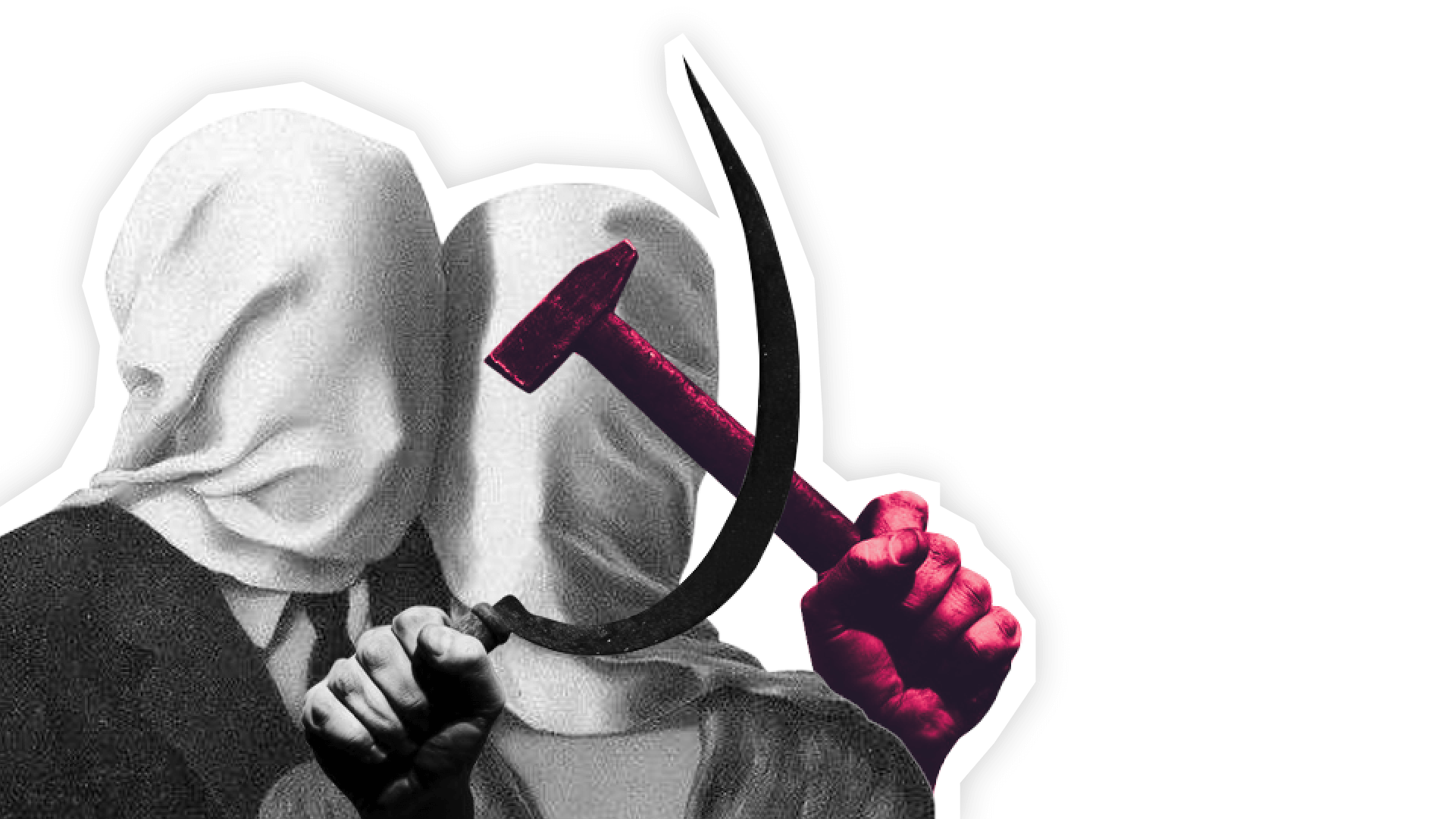
What if homophobia in Central Asia is a product of colonialism?

Russian Propaganda’s Influence on Soviet and Post-Soviet Homophobic Narratives in South Caucasus
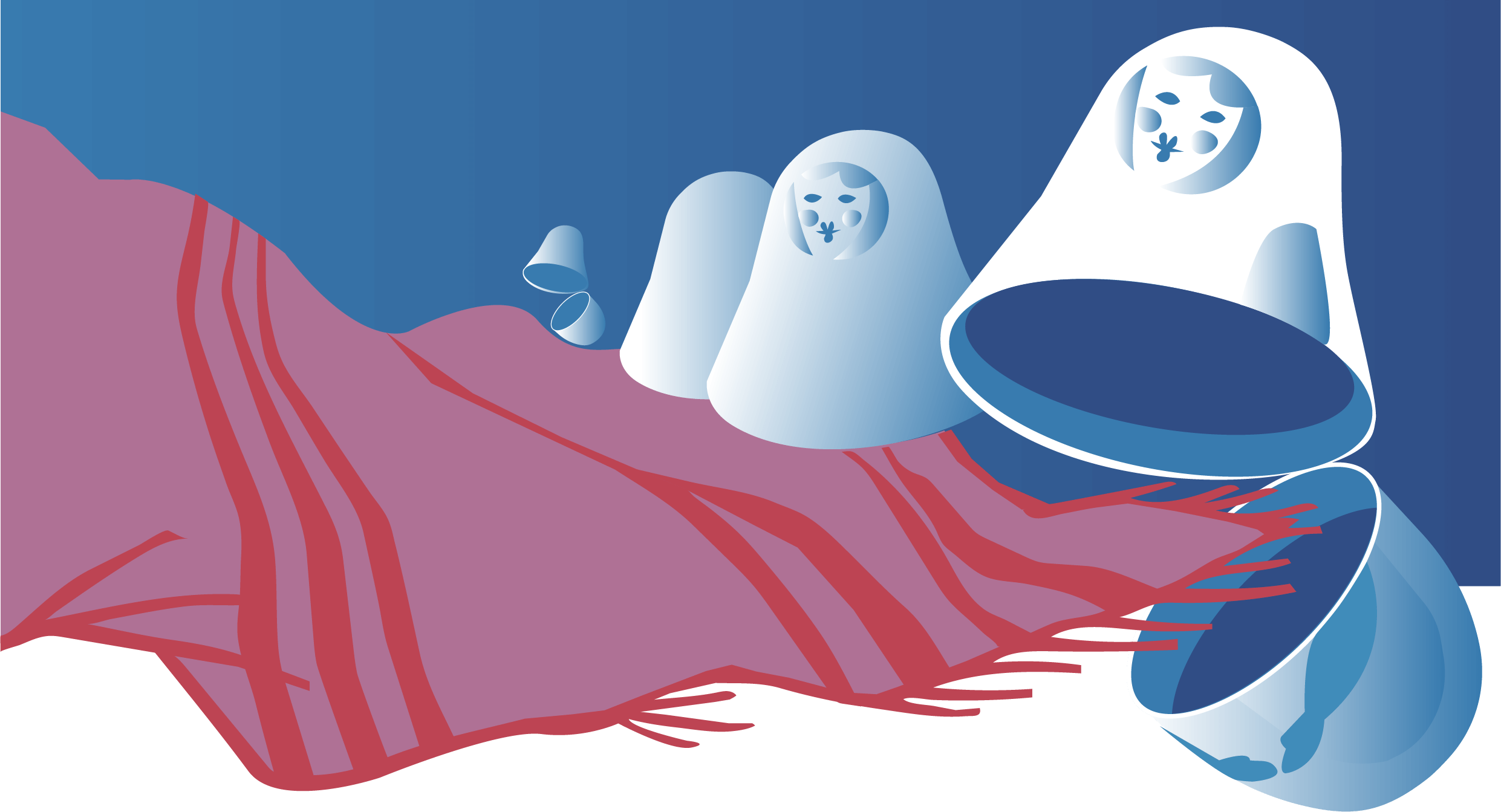
Russian Colonialism and Homophobia in Moldova
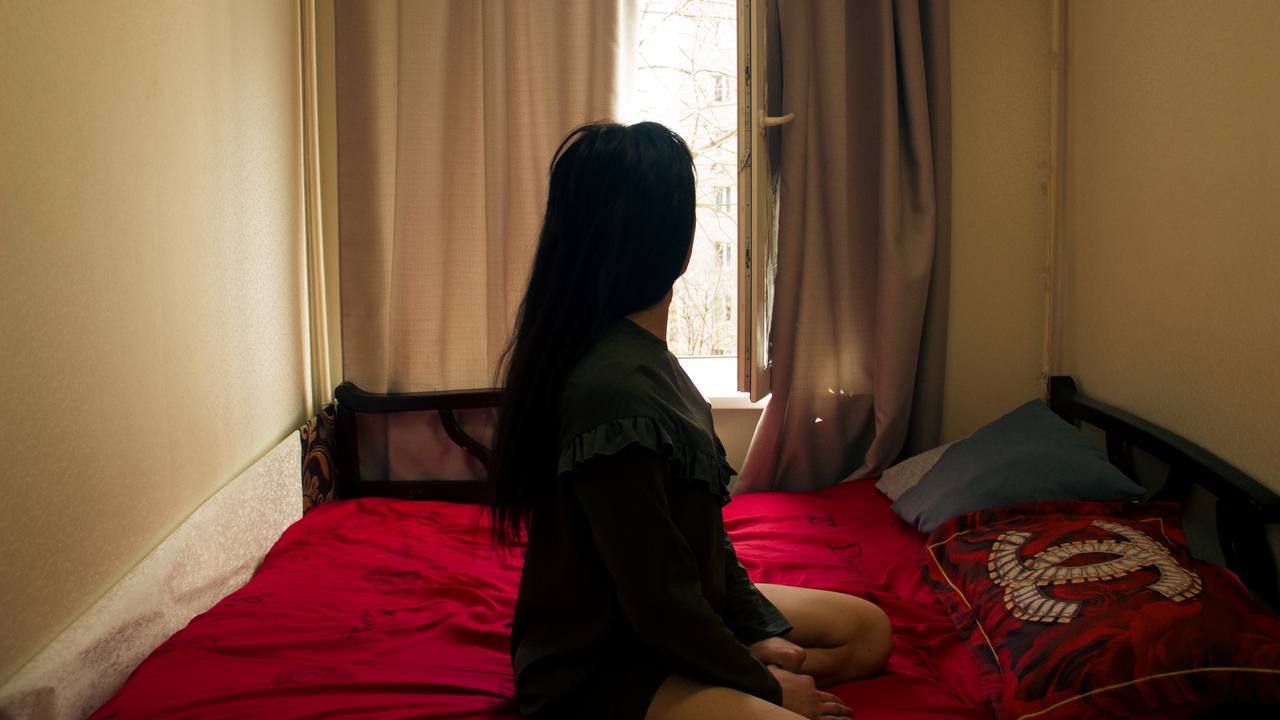
Migration Is the Path to Freedom. A Photo Report about Sumaya
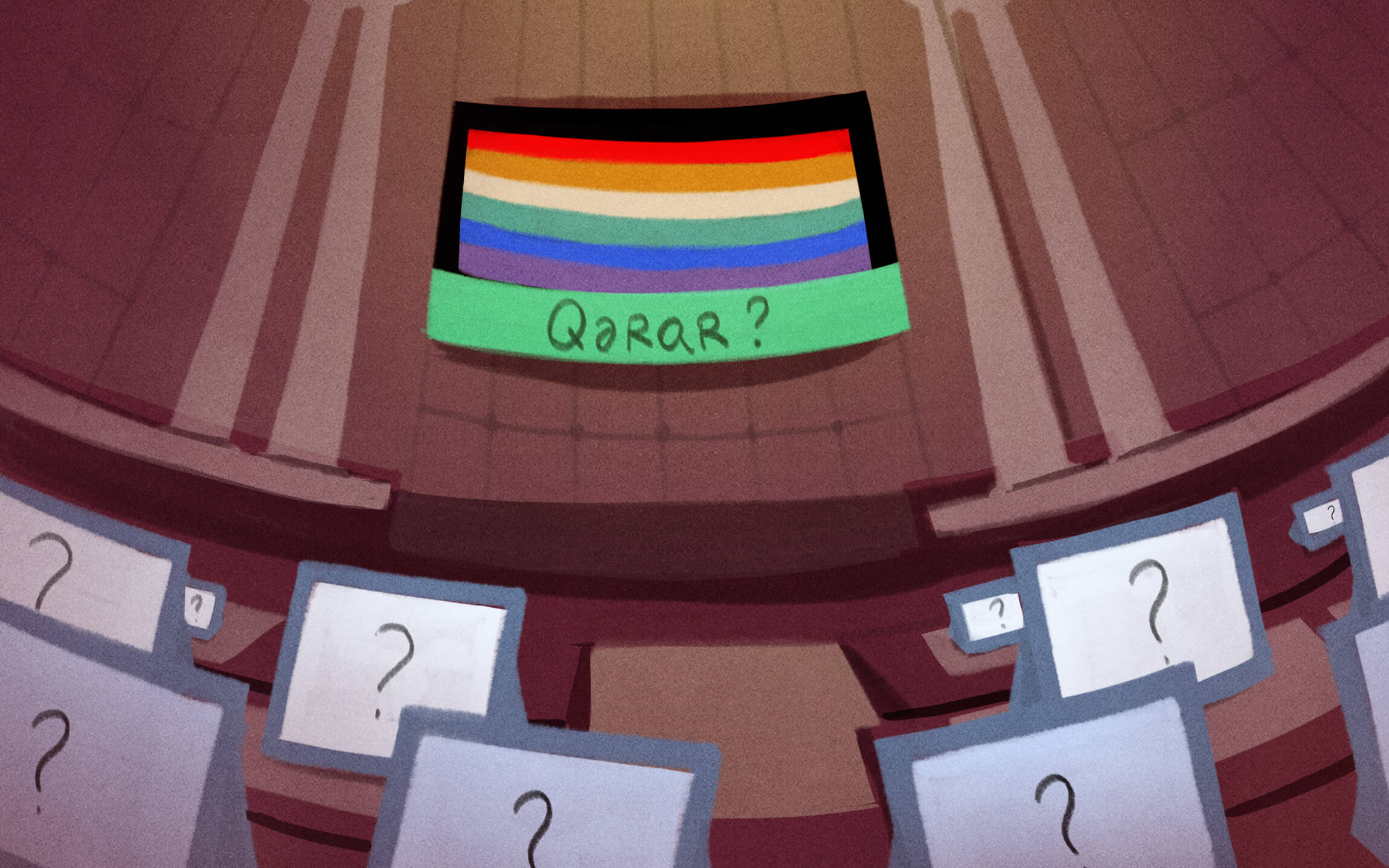
Russia’s Homophobic Law Inspires Azerbaijani Political Elites

Non-traditional Values: Did Uzbekistan Inherit Homophobia and Family Concepts from Soviet Union?

Gay Pride Parade, “Dazhynki” or White March: which holiday suits “Belarusians of the future”?

Beyond Blurred Existence
